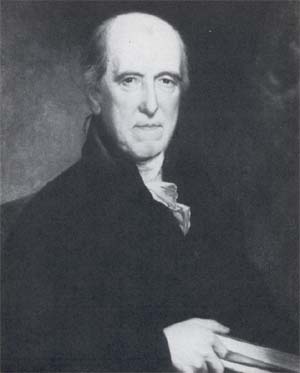
Jared Ingersoll represented Pennsylvania at the Constitutional Convention. An accomplished attorney, he argued before the U.S. Supreme Court in the early days of the republic, arguing important constitutional law issues in Chisolm v. Georgia and Hylton v. United States. He also unsuccessfully ran for vice-president in 1812.
Early Life
Jared Ingersoll was born on October 24, 1749, in New Haven, Connecticut. He attended Yale University, graduating in 1766. He later was admitted to practice law in Pennsylvania. Ingersoll’s father served as a British Colonial official, and he sent his son to Europe for two years to keep him away from the initial unrest in the colonies. When Ingersoll returned in 1778, he was no longer a Loyalist and supported the American war for independence. Ingersoll entered politics in 1780 upon winning election to the Continental Congress.
Constitutional Convention
In 1787, Ingersoll represented Pennsylvania at the Constitutional Convention. At the outset of the Convention, Ingersoll was in favor of simply revising the existing Articles of Confederation. However, he ultimately supported the plan to establish a new federal government. While he regularly attended the sessions, Ingersoll rarely participated in debates.
Later Life
Following the Convention, Ingersoll continued to hold public office. He served as attorney general of Pennsylvania from 1790 to 1799 and again from 1811 to 1817. He also briefly served as Philadelphia’s city solicitor (1798-1801), and as U.S. district attorney for Pennsylvania (1800-1801). Ingersoll unsuccessfully ran for Vice President in 1812. From 1821to 1822, he sat as presiding judge of the Philadelphia district court.
Ingersoll’s private legal practice was also very successful. For many years, he was legal counsel to Stephen Girard, one of the country’s most prominent businessmen. Ingersoll also argued before the U.S. Supreme Court, tackling issues related to the Constitution he had helped create years prior. He argued in both Chisholm v. Georgia, 2 U.S. 419 (1793), and Hylton v. United States, 3 U.S. 171 (1796), although he was on the losing side. Ingersoll also represented fellow-delegate William Blount, a senator, when he was facing impeachment. He died on October 31, 1822, at the age 73.







